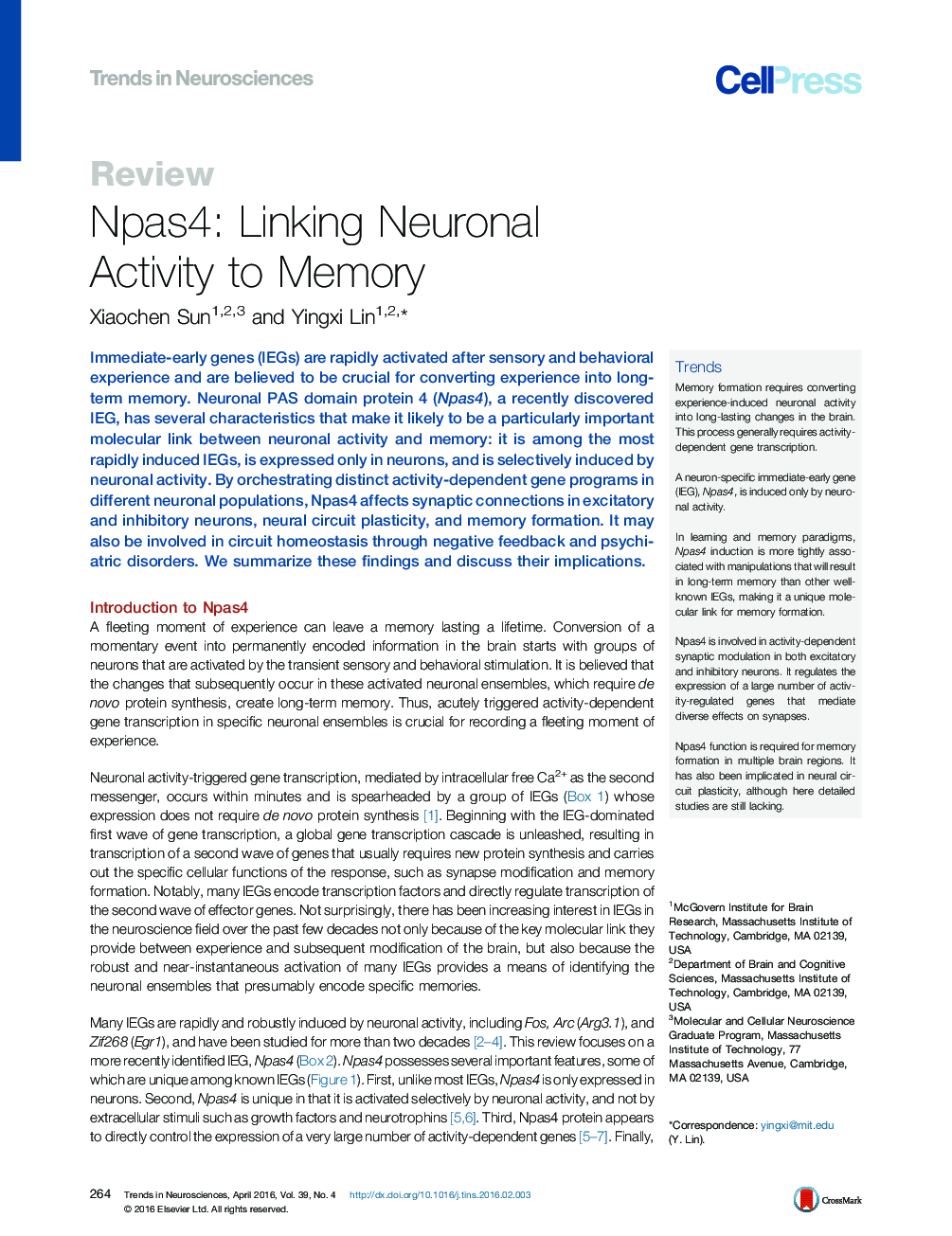| Article ID | Journal | Published Year | Pages | File Type |
|---|---|---|---|---|
| 4354152 | Trends in Neurosciences | 2016 | 12 Pages |
Immediate-early genes (IEGs) are rapidly activated after sensory and behavioral experience and are believed to be crucial for converting experience into long-term memory. Neuronal PAS domain protein 4 (Npas4), a recently discovered IEG, has several characteristics that make it likely to be a particularly important molecular link between neuronal activity and memory: it is among the most rapidly induced IEGs, is expressed only in neurons, and is selectively induced by neuronal activity. By orchestrating distinct activity-dependent gene programs in different neuronal populations, Npas4 affects synaptic connections in excitatory and inhibitory neurons, neural circuit plasticity, and memory formation. It may also be involved in circuit homeostasis through negative feedback and psychiatric disorders. We summarize these findings and discuss their implications.
TrendsMemory formation requires converting experience-induced neuronal activity into long-lasting changes in the brain. This process generally requires activity-dependent gene transcription.A neuron-specific immediate-early gene (IEG), Npas4, is induced only by neuronal activity.In learning and memory paradigms, Npas4 induction is more tightly associated with manipulations that will result in long-term memory than other well-known IEGs, making it a unique molecular link for memory formation.Npas4 is involved in activity-dependent synaptic modulation in both excitatory and inhibitory neurons. It regulates the expression of a large number of activity-regulated genes that mediate diverse effects on synapses.Npas4 function is required for memory formation in multiple brain regions. It has also been implicated in neural circuit plasticity, although here detailed studies are still lacking.
